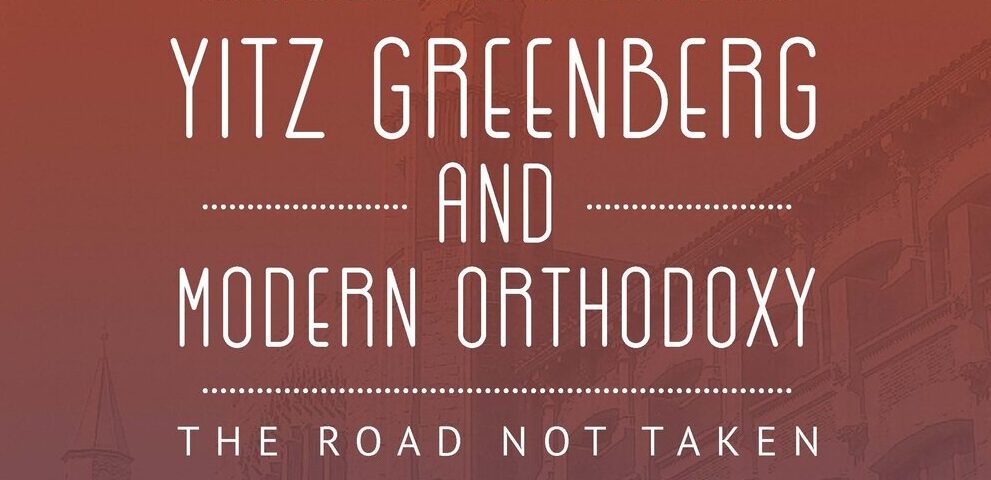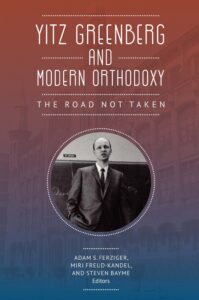REVIEW: Greenberg’s Road Not Taken

 In reviewing Yitz Greenberg and Modern Orthodoxy: The Road Not Taken (Academic Studies Press, 2019), David Wolkenfeld writes:
In reviewing Yitz Greenberg and Modern Orthodoxy: The Road Not Taken (Academic Studies Press, 2019), David Wolkenfeld writes:
The “road not taken” is a captivating framing for a book. How would our community look different today if we had elevated alternative perspectives decades ago? How would the contours of our devotion to Torah and mitzvot have been shaped had our parents and teachers made different choices? What is the essential foundation upon which our community’s formidable strengths rest? Could we have solved some of the enduring challenges that vex our community had we oriented our institutions around different values? The “road not taken” is an engaging framing device to animate the study of intellectual history. Why do we think as we do? How did people see the world differently in the past? The “road not taken” is also the organizing theory for a stimulating, recent volume edited by Adam Ferziger, Miri Freud-Kandel, and Steven Bayme, and dedicated to the life and thought of Rabbi Irving (Yitz) Greenberg, an educator, rabbi, and public intellectual who is one of the most influential figures in modern Jewish life whose thought and leadership can still fairly be described as “the road not taken.”
It is hard to evaluate the claims by and about R. Greenberg, because, as a product of the world as it developed – the “road taken” – I cannot escape my own education and acculturation within an Orthodox community that by and large was not shaped by R. Greenberg’s alternative vision. Reading paragraph after paragraph of the autobiographical essay which opens the volume I kept asking: Precisely which bold answers are you suggesting? What kind of halakhic creativity is needed? Could you share the halakhic analysis that could justify or explain the position you are suggesting? At the same time, the spheres in which R. Greenberg has had the most influence on the American Jewish community have been so transformed in the past 50 years that it is hard to recognize how much of what I take for granted about American Jewish life did not exist at the outset of R. Greenberg’s career and activism. The premise of my own conversations with non-Orthodox rabbinic colleagues has been a mutual admiration for Torah scholarship, recognition that beit midrash study is at least as authentic as other methods for analyzing Jewish texts, and respect for ritual observance. The local Jewish Federation where I live, along with others in major American cities, funnels hundreds of thousands of dollars each year from their mostly non-Orthodox donors towards Jewish day schools of all kinds. R. Greenberg may not have succeeded in convincing most Orthodox Jews to embrace a pluralistic stance with regards to non-Orthodox denominations, but Orthodox Jews benefit from the pluralism with which non-Orthodox Jewish movements understand and appreciate Orthodoxy.
Read the full review in TRADITION (Winter 2021) here.
